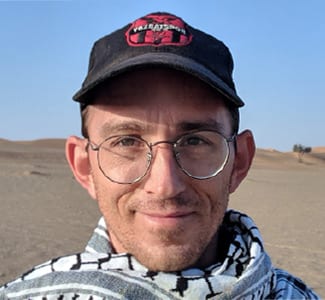
Date: Wednesday, October 28, 2020
Speaker: Joseph “Seppi” Lehner, Ph.D.
Australian Research Council Discovery Early Career Research Award Fellow
Department of Archaeology
The University of Sydney
Courtesy Assistant Professor
Department of Anthropology
University of Central Florida

Abstract: Metals were a fundamental part of Roman life, providing a wide range of weapons, coins, implements and jewelry. Given the scarcity of metals in Roman provinces, demand for these precious resources drove previously unprecedented scales of interaction and trade that affected linked Rome, including major trading centers like Pompeii, to the Roman provinces and beyond.
This presentation will examine how metal production and trade shaped the Roman world, and how the archaeological study of these materials give us extraordinary insight into not only the mechanics of the empire but also the daily lives of people who once lived there.
Biography: Joseph Lehner is an Australian Research Council Discovery Early Career Award Fellow at The University of Sydney and a Courtesy Assistant Professor at the University of Central Florida. As a specialist in ancient mining and metallurgy, he currently co-directs research at Kerkenes Dağ Project (Turkey), the Bronze Age Cape Gelidoyna Shipwreck Project (Turkey), and the Archaeological Water Histories of Oman Project (Oman). He finished his PhD at the UCLA Cotsen Institute of Archaeology at UCLA, is a past Alexander von Humboldt German Chancellor Fellow at the University of Tübingen and a Senior Fellow at the Research Center for Anatolian Civilizations at Koç University in Istanbul. He conducts extensive field work in Turkey and Oman, and has been involved in projects elsewhere in Egypt, Ethiopia, India, and Arctic North America. His research focuses on the social, environmental, and cultural impacts and deep history of ancient trade and political economy.
